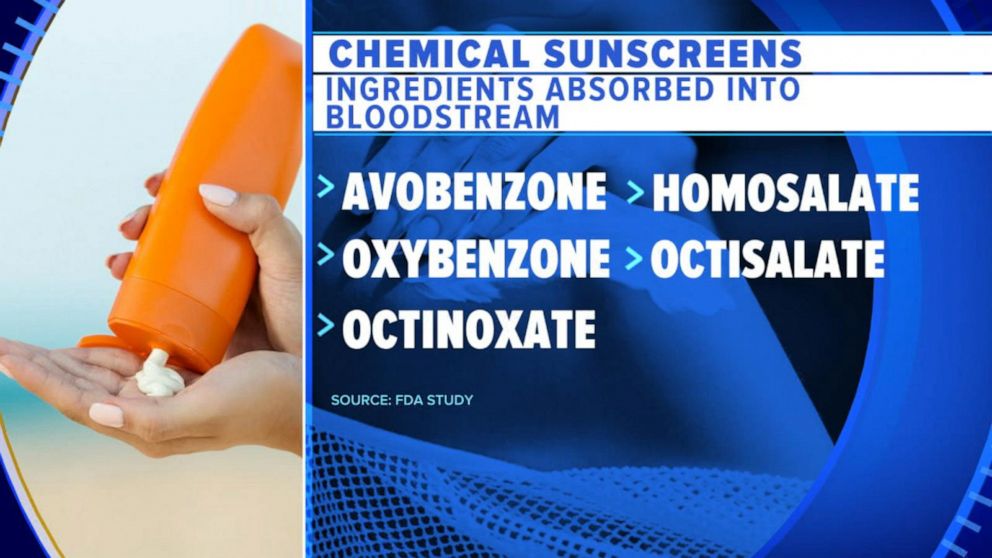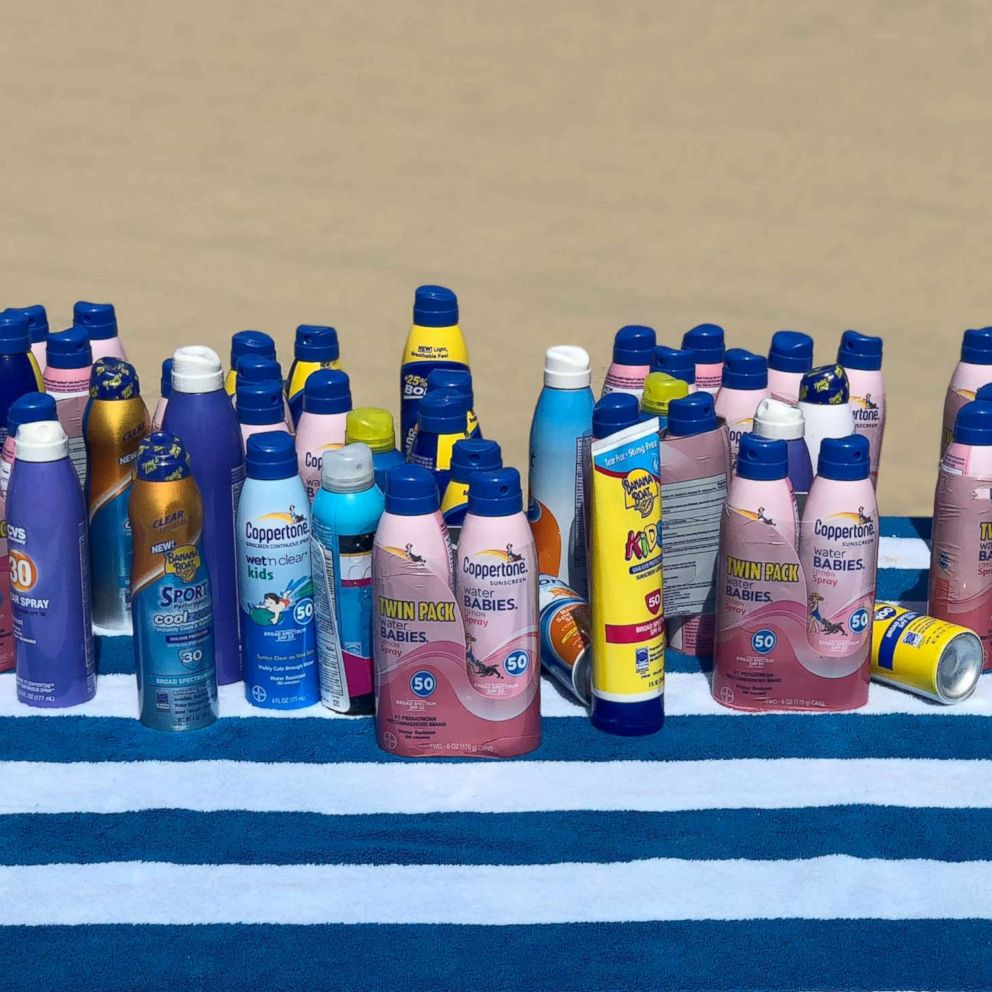2 studies find potentially harmful ingredients in some popular sunscreens: What you need to know
Summer is here and with that comes the need for sunscreen, and also questions about what sunscreens are best for the body.
Two studies -- published in JAMA, one last year and one earlier this year -- have shown that there are potentially harmful ingredients in some of the most popular sunscreen products on the market, as first reported in the Wall Street Journal.
The U.S. Food and Drug Administration (FDA) still advises the use of sunscreen to prevent skin cancer but is looking further into whether the active ingredients from sunscreens that go into users' blood levels can cause damage.
If active ingredients are found in the blood at a level of 0.5 nanograms per milliliter or higher, they should be analyzed to determine whether they could increase the risk of cancer, birth defects or other adverse effects, according to the FDA.
There are two main categories when it comes to active ingredients in sunscreen: physical, or mineral, ingredients and chemical ingredients, according to Dr. Whitney Bowe, a New York City-based dermatologist.
The two studies that found sunscreen ingredients may enter the bloodstream focus on some of the most popular chemical sunscreen ingredients, including avobenzone, oxybenzone, octinoxate, homosalate and octisalate, according to Bowe.

The physical, or mineral blockers, zinc oxide and titanium dioxide, were not included in the study because those are not thought to be absorbed into the bloodstream, explained Bowe.
"As of now we don’t know what effects this absorption [of chemical sunscreen ingredients] has on human health," Bowe said Monday on "Good Morning America," noting that the subjects in the studies applied sunscreen to 75% of their body every two hours. "Researchers found concerning levels, some of which persisted for weeks."
"There are preliminary studies showing that some of these ingredients, like oxybenzone, can have hormonal effects. In the laboratory setting they can mimic estrogen," she said. "We don’t know what those mean for humans so more studies are needed."
The Consumer Healthcare Products Association (CHPA) and Personal Care Products Council -- two agencies that represent sunscreen manufacturers -- told ABC News in a statement, “[We are] committed to continue working in partnership with FDA to support the safety of sunscreen active ingredients.”
Bowe said that as research continues, the use of sunscreen remains a must. About 4.3 million people are treated for basal cell cancer and squamous cell skin cancer in the United States every year, according to data shared by the FDA.
FDA guidelines recommend using "broad spectrum sunscreens with a Sun Protection Factor (SPF) value of 15 or higher regularly and as directed."
In addition to sunscreen, Bowe recommends wearing sun protective fabrics like rash guards and a broad-brimmed hat to protect skin from the sun.






